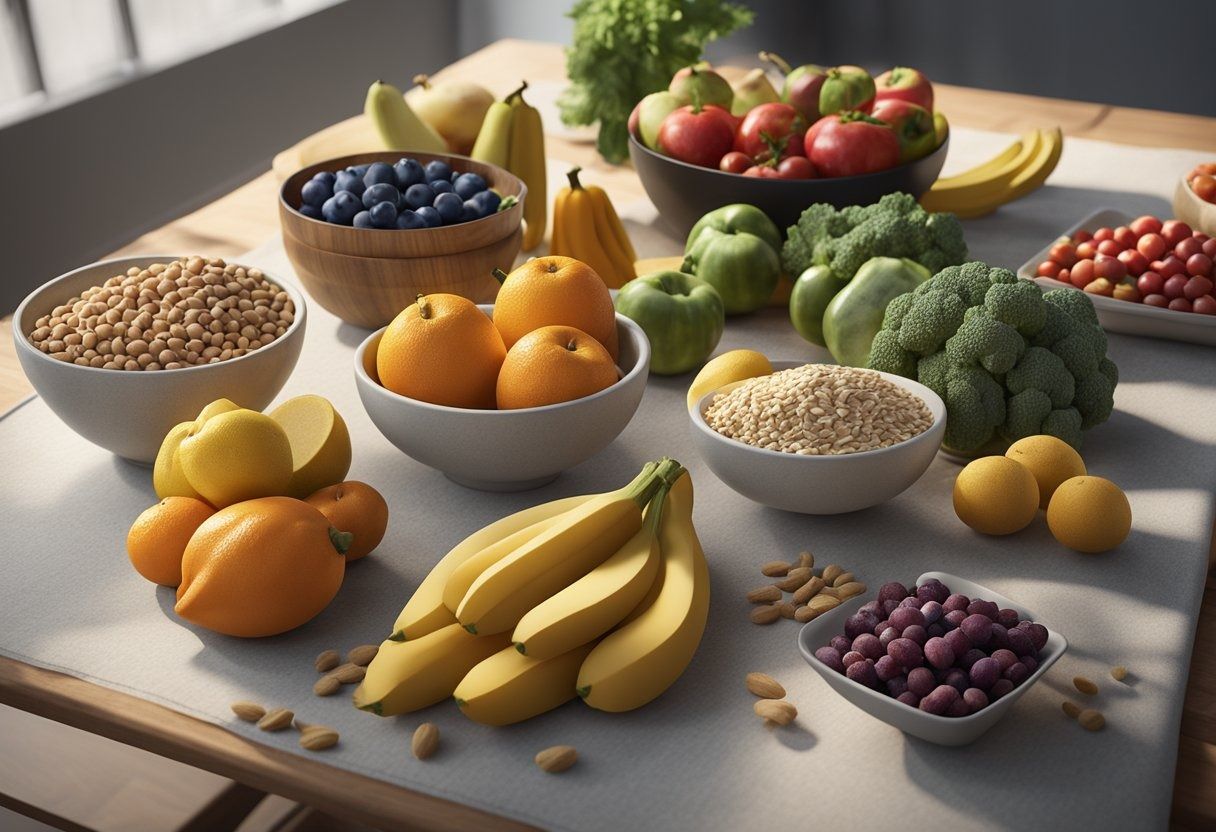Fiber is an essential nutrient that is often overlooked in our diets. It plays a crucial role in maintaining healthy digestion and preventing chronic diseases. But did you know that fiber can also aid in weight loss?
Fiber is recommended by the health community for more than just unclogging yourself. To keep up on fibers role on health, I've been reading a lot about nutrition and weight management lately, and one topic that frequently comes up is the role of dietary fiber. It seems to be a crucial element, but I'm not entirely clear on why it's so significant for weight loss and overall health.
Fiber, often an unsung hero in the nutritional world, plays a multifaceted role in our health, particularly in weight management. It's not just about aiding digestion; fiber impacts our eating habits, metabolism, and even the way our body processes nutrients. Understanding the nuances of fiber – from the types and sources to its physiological impacts – can unlock significant benefits for anyone looking to maintain a healthy weight and improve their overall wellbeing.
Understanding Fiber
Besides the unclogging, fiber is an essential nutrient that is found in plant-based foods such as fruits, vegetables, whole grains, nuts, and seeds. It is a type of carbohydrate that our bodies cannot digest, and it passes through our digestive system mostly intact.
Fiber and Weight Loss
As someone who in the past, has struggled with weight loss, I have come across various diets and supplements that claim to help with weight loss. However, one thing that is often overlooked is the role of fiber in weight loss.

Fiber is important for our overall health, but it also plays a crucial role in weight loss. It can help us feel full and satisfied, which can reduce our overall calorie intake. Additionally, fiber-rich foods are often lower in calories and higher in nutrients than processed foods, making them a better choice for weight loss.
Mechanism of Action
Fiber is a type of carbohydrate that the body cannot digest. This means that it passes through the digestive system relatively intact. One of the ways that fiber can help with weight loss is by increasing satiety. When we eat foods that are high in fiber, they take longer to digest, which means we feel fuller for longer. As a result, we are less likely to overeat or snack between meals.

Defining Satiety
Satiety can only be understood with respect to the entire appetite control system. Thus, the state of satiety is reached by consuming an adequate amount of food in a specific period of time. Food intake is driven by a powerful biological need to obtain sufficient energy to sustain life. However, meals are initiated before significant food deprivation is experienced and intake terminated before nutrients are delivered to the system. Recent theories of what controls food intake have shifted from purely homeostatic to the proposal that there are both direct and indirect controls of food intake. An idea that was first suggested by Smith in his seminal article from 1996. In order to provide a context for research on satiety, a short historical background will be provided and then evidence from alternative theories discussed; then, sensory-specific satiety (SSS) is illustrated as one example of satiety linked to specific foods eaten. The implications for this research for the consumer will be discussed in relation to both weight management and other benefits of enhanced satiety.
Another way that fiber can help with weight loss is by reducing the number of calories that we absorb from our food. This is because fiber can bind to some of the calories in our food, preventing them from being absorbed into the body. As a result, we end up absorbing fewer calories, which can help with weight loss.
Types of Fiber
There are two types of fiber: soluble and insoluble. Let's look at soluble fiber which dissolves in water and forms a gel-like substance in our digestive system. It can help lower cholesterol levels and regulate blood sugar levels.
Now on the other spectrum is insoluble fiber which does not dissolve in water and adds bulk to our stool, which helps to prevent constipation and promote regular bowel movements.
Fiber can play an important role in weight loss. By increasing satiety and reducing the number of calories that we absorb, fiber can help us to lose weight and maintain a healthy weight. It is important to include both soluble and insoluble fiber in our diets to ensure that we are getting all of the benefits that fiber has to offer.
Incorporating Fiber into Your Diet

What Can You Eat More Of?
According to the Academy of Nutrition and Dietetics, the recommended daily intake of fiber is 25 grams for women and 38 grams for men. However, most people don't consume enough fiber on a daily basis. It's important to gradually increase your fiber intake to avoid digestive discomfort.
Incorporating fiber into your diet is easier than you might think. There are plenty of delicious foods that are great sources of fiber. Here are some of the best options:
- Fruits: Berries, apples, pears, bananas, oranges, and grapefruit are all great sources of fiber.
- Vegetables: Broccoli, Brussels sprouts, carrots, spinach, kale, and sweet potatoes are all high in fiber.
- Legumes: Lentils, black beans, chickpeas, and kidney beans are all excellent sources of fiber.
- Whole grains: Oats, quinoa, brown rice, and whole wheat bread are all high in fiber.
Here are some tips to help you increase your fiber intake:
- Start your day with a high-fiber breakfast, such as oatmeal or whole grain cereal.
- Snack on fruits and vegetables throughout the day.
- Choose whole grain bread and pasta instead of white.
- Add legumes to soups, stews, and salads.
- Aim to eat at least five servings of fruits and vegetables every day.
By incorporating fiber-rich foods into your diet, you can improve your overall health and achieve your weight loss goals. Remember to drink plenty of water to help fiber move through your digestive system smoothly.
Potential Considerations

While fiber has many health benefits, it is essential to consider some potential risks and side effects before increasing your fiber intake. Here are some of the things to keep in mind:
Digestive Issues
For some individuals, increasing fiber intake too quickly can cause digestive issues such as bloating, gas, cramping, and diarrhea. Therefore, it is essential to increase fiber intake gradually and drink plenty of water to help your body adjust.
Medication Interactions
Fiber supplements can interact with some medications, including blood thinners, cholesterol-lowering drugs, and diabetes medications. If you are taking any medication, it is essential to talk to your doctor before taking any fiber supplements.
Nutrient Absorption
Fiber can bind to some nutrients, making it difficult for your body to absorb them. Therefore, it is essential to balance your fiber intake with a variety of nutrient-dense foods to ensure that you are getting all the essential vitamins and minerals your body needs.
Allergies
Some individuals may be allergic to certain types of fiber, such as wheat bran or psyllium. If you experience any allergic reactions after consuming fiber-rich foods or supplements, it is essential to talk to your doctor.
I want to reiterate the importance of fiber in not just weight loss, but in promoting overall health and well-being. My journey and those of many of my patients underscore that a diet rich in both soluble and insoluble fiber can be a cornerstone of a healthy lifestyle. Remember:
Balance is the key by incorporating a variety of fiber sources for overall health benefits. Listen to Your Body: Adjust fiber intake gradually and stay hydrated to avoid digestive issues. Look Beyond Weight Loss: Appreciate fiber's role in improving gut health, blood sugar control, and heart health.
As you embark on this path, remember that change takes time and patience. Each small step you take towards a diet richer in fiber is a step towards a healthier you. I encourage you to explore, experiment, and find joy in the variety of fiber-rich foods available.
Your journey to better health is unique, and embracing fiber is a powerful and delicious part of that journey.
Until next time- stay Vibrant!





